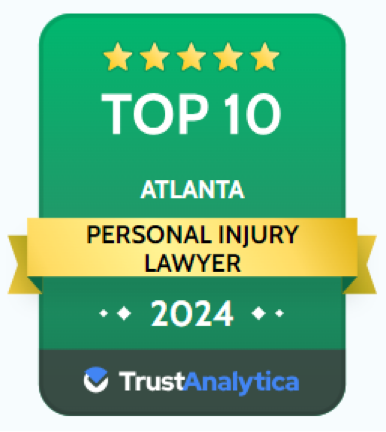All information provided about the law is very general in nature and should not be relied upon as legal advice. Every situation is different and should be analyzed by a lawyer who can provide individualized advice based on the facts involved in your unique situation, and a consideration of all of the nuances of the statutes and case law that apply at the time.
How to Start a Class Action Lawsuit
When products, employers, or services fail to meet expectations, we typically chalk it up as a loss and move on with our day. The money or time we spent might not have been much, so our loss isn’t all that substantial. Sometimes, though, failed expectations carry grave consequences. A defective product can injure.
What is a Class Action Lawsuit?
When numerous people suffer the same or similar injuries because of a single actor or a small group of actors, they can combine their lawsuit into a class action lawsuit. Class action lawsuits are an efficient means of achieving justice because they combine what would otherwise be thousands of smaller claims flooding the justice system. But how do these types of claims originate?
How to File A Class Action Lawsuit
Injured victims, whether due to defective products, false advertising, fraud or more, can file class action lawsuits at the state or federal level. Each state has different requirements to qualify as a class action lawsuit, but the federal government outlines its requirements in Rule 23 of the Federal Code of Civil Procedure.
Speaking with a qualified class action attorney is the first step in any potential lawsuit. A reputable firm should offer a free initial consultation to hear your story, understand the key facts, and analyze them to see if there’s a potential case. If there is a case, that injured person may even become the lead plaintiff by taking the next step in filing a class action lawsuit—the complaint.
A class action lawsuit will start with a complaint, whether at the state or federal level. A complaint isn’t a strongly worded letter or negative review on a website. It’s a formal legal document that outlines the harm the injured party has endured because of a company’s actions and demands a response and remedy
At this point, there isn’t a substantial difference between a class action lawsuit and a standard lawsuit. To qualify as a class action lawsuit, the injured party or parties must satisfy four requirements:
- Numerosity
- Commonality
- Typicality
- Adequate Representation
We’ll explain each requirement in more depth, starting with numerosity.
How Many People Do You Need For A Class Action Lawsuit?
Class action lawsuits are actions a particular “class” of people takes against a single party for damages. The class may reside in the same jurisdiction (a state or federal court district), have purchased the same product, or have suffered the same harm at the hands of one company.
Most courts require that at least 40 people suffer from the same exact or very similar harms to qualify as a class. Suppose fifteen people all suffered the same harm from the same company. In that instance, a judge would recommend that these fifteen plaintiffs pursue individual personal injury claims.
In some class action lawsuits, millions of class members may be spread across the country. The courts are less concerned about the maximum number of plaintiffs but want to ensure that these plaintiffs can be identified.
Other Requirements for Class Action Lawsuits
A class of hurt individuals isn’t enough to qualify as a class action lawsuit. A judge will consider whether the harms were sufficiently similar, whether the lead plaintiff(s) harm was typical of the class, and whether the class is adequately represented by the lead plaintiff.
Commonality
If thousands of cases were brought for a single harm, the cases might be decided differently, creating thousands of standards nationwide. One of the benefits of class action lawsuits is that they can set a standard for companies.
That’s why an essential standard for class action lawsuits is that all the class members must have suffered the same harm. This is known as the community standard, which outlines that there must be a question of law or fact common to all class members.
Typicality
Courts will also assess whether the lead plaintiff, who brought the original complaint, suffered harm typical of class members. In a situation where the lead plaintiff suffered much more than the norm, a judge would encourage that plaintiff to pursue their claim separately from the rest of the class.
Likewise, if everyone suffered to varying degrees such that there isn’t a typical plaintiff, then there isn’t a viable class action lawsuit. Attorneys will struggle to negotiate a settlement or argue for damages that are fair to everyone involved. Courts will also find it challenging to approve settlements that might minimize some plaintiffs’ harms while exaggerating others.
Adequate Representation
Courts require that attorneys bringing class action lawsuits have experience handling claims of this size and magnitude. Class action lawsuits can take three years on average from complaint to settlement, which is why an experienced attorney is critically important. However, adequate representation doesn’t just apply to the lawyers involved.
They also want to ensure that the class is adequately represented by the lead plaintiffs who are actively participating in the case. The lead plaintiff(s) will be the most involved in the case and may receive an additional payment in a settlement. For that reason, the courts want to ensure those lead plaintiffs share the same interests as the class at large.
How Much Does it Cost to Start A Class Action Lawsuit?
There aren’t typically any upfront costs associated with starting a class action lawsuit. Instead, the attorneys on the case work on a contingency fee basis in most cases. This means that they receive a portion of the total settlement rather than accepting payment upfront.
Working on a contingency fee structure offers an affordable pathway for plaintiffs to bring their cases forward.
How to Join a Class Action Lawsuit
Most class action lawsuits are ‘opt-out’ lawsuits. This means that potential class members are included in the suit unless they specifically ask to be excluded. If you believe you may be a class member in a class action lawsuit, there’s no action you need to take until it comes time to claim your potential portion of the settlement.
Most class members are unaware that a lawsuit is in progress until a settlement is announced. Affected class members may learn about the lawsuit when they receive a class notice. This document informs them that they are likely a party to the suit and the process for receiving compensation.
When a class member has suffered worse harm than most, when their injury was atypical of other class members, they may want to exclude themselves from the case. Otherwise, they can simply follow the instructions in the class notice.
How Much Money Do You Get From A Class Action Lawsuit?
People often wonder, “What is the average payout for a class action lawsuit?” At the total level, the average settlement is around $50-60 million, but the average class member’s payout can range widely.
Class action lawsuits evenly distribute the settlement amount among the class members, meaning a higher total settlement leads to higher payouts for the eligible class members. Payouts can range from $10 to $10,000 or more, depending on the claim and the class members’ injuries.
The lead plaintiffs are typically awarded higher compensation for their more active participation in the case. Unclaimed dollars are either awarded to charitable organizations, spread among the identified class members, or returned to the defendants.
Montlick. Real Help Begins Here®
The products we buy, where we choose to live and, the services we use, signal our trust in those institutions. A defective product or toxic chemicals can leave us searching for answers as we face diagnoses and mounting medical bills. You may feel like you’ve suffered a random accident, and there’s nothing you can do. Who will help you demand justice?
Don’t suffer in silence. Talk to Montlick instead. Our experienced attorneys understand class action lawsuits and know what it takes to win for our clients. We’ve built a reputation fiercely defending our clients for over 40 years. Our class action attorneys are fighting for victims affected by Camp Lejeune’s toxic groundwater, hair Relaxer-caused cancers, and the BioLab fire in Rockdale County, Georgia. If you’ve suffered similar harms there may be compensation available to you too.
Contact us today to see how Montlick can make a difference. Your initial consultation is free.
How useful is this for you?
Would you like to speak with an attorney?
Call NowRelated Questions
We Win More than Settlements.
We win the peace-of-mind you need to get your life back.
At Montlick, we believe comprehensive legal representation is a right, not a privilege. That’s why we provide our services on a contingency fee basis. You only pay when we win.








